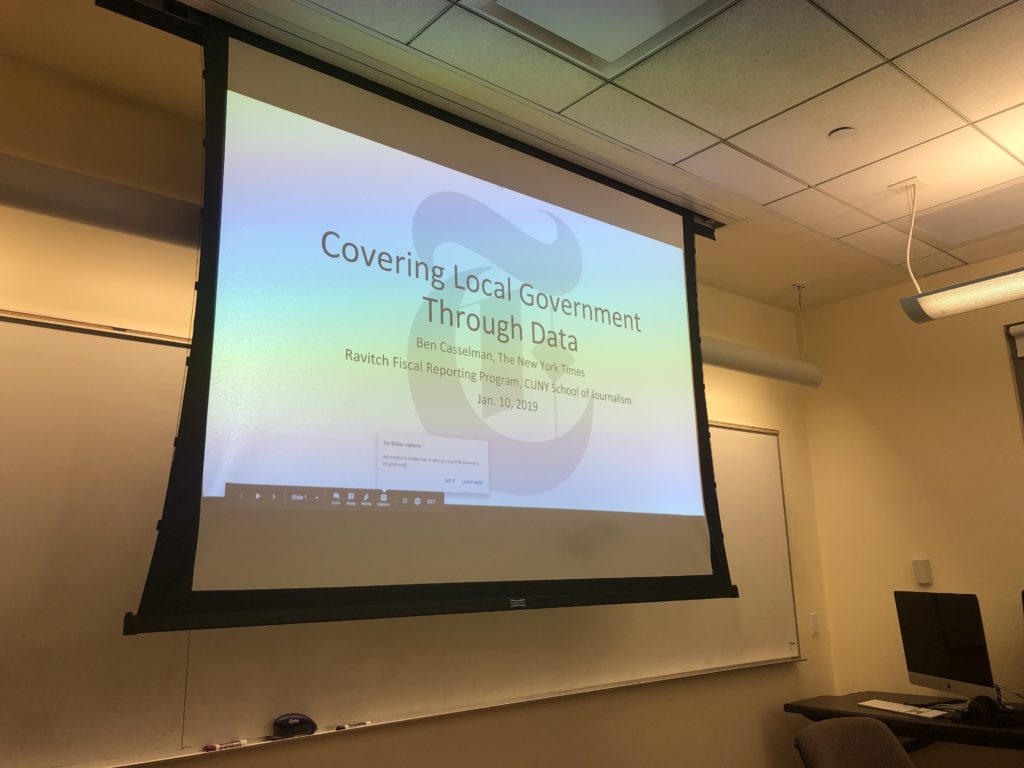In January 2019, I was named a fellow in the Ravitch Fiscal Reporting Program at CUNY’s journalism school in New York City. The program gives journalists tons of information and online resources about public finance so they can become better reporters on fiscal policy and budget issues among state and local governments. I joined about 20 other journalists from across the country for a weeklong series of talks, exercises, discussions and overall learning. Here are my five takeaways.
THE STOCK MARKET greatly affects how local governments are able to raise money. Local governments use bonds to pay for large capital projects (like repaving roads or building new facilities) and if the stock market does poorly, it affects the interest rate on those bonds. State and local governments also depend on the well-to-do to earn a lot of money on capital gains (stock market income) in order to tax their income. If the stock market doesn’t do well, it creates less money for governments to tax.
THERE ARE TWO IMPORTANT FINANCIAL DOCUMENTS that contain great story ideas or information for other stories. Written deep with a local government’s bond prospectus is all types of demographic data about the city/town. It can give a reporter a glimpse of the financial/economic health of an area. The comprehensive annual financial report, or CAFR, is also a great spot for finding stories and getting the easily digestible version of a government’s budget of the past few years.
THE MSRB’s EMMA tool gives you free access to the bonds and the CAFR. It’s not as elegant and simple as Google, but EMMA has the documents attached to almost every bond a government issues. I don’t think they have U.S. Treasury Bonds, for example, but MSRB/EMMA has state and local governments as well as water authorities, school districts, and another governmental agency with tax-levying power. For me that means places like North Hempstead, Mineola, Floral Park, and New Hyde Park.

DATA REPORTING IS YOUR FRIEND when trying to find local government stories. The bureau of labor statistics, the census bureau, and other federal agencies keep quarterly data that can be imported into an Excel file. Likewise, state and local governments keep revenues and expenditures on massive spreadsheets that can be downloaded. Excel or Google Sheets can help a reporter see the percentage change over certain areas of a government budget.
GOVERNMENT SPONSORED PENSIONS COULD BANKRUPT many local governments across the country. Several cities across the country are on the hook for providing wages and health benefits for former employees who have retired from their jobs. However, over time, governments are starting to see that those pensions are becoming more and more expensive. Some localities are depending on the stock market to help pump money into their pension funds, but most returns aren’t keeping up with the rate of money governments need to pump into their pension funds.